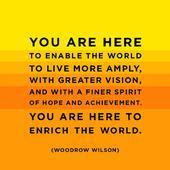Jurassic Park Syndrome
Why corporations shouldn't take the cause out of cause marketing
http://www.fastcompany.com/magazine/133/do-something-jurassic-park-syndrome.html
Why For-Profits Need Not-For-Profits
BY: NANCY LUBLIN Tue Feb 3, 2009 at 12:29 PM
In Jurassic Park, the dinosaurs roam the island terrorizing the humans, who seek refuge in the main building -- a sanctuary with security that beasts surely aren't smart enough to breach, right? Wrong! The big moment of terror is when those dumb animals learn to turn the doorknobs. Uh-oh. Now the humans hiding in the kitchen are really screwed.
We're witnessing a Jurassic Park moment in the social-good space: Not-for-profits are screwed, and it's partly our own doing. For years, we -- the martyrs, the saints, the do-gooders -- have had the keys to that door to heaven. But then we shared them with corporate America, through a practice known as "cause marketing" since 1983, when American Express launched a campaign in partnership with the National Park Service for the Statue of Liberty restoration project.
You see these campaigns everywhere now. Companies buy goodwill by touting that "a percentage of the proceeds goes to ..." or slapping a charity's logo on packaging. Want to show moms that your company cares about children? Partner with the Make-A-Wish Foundation or St. Jude Children's Research Hospital -- moms love sick kids. Need marketing oomph with African-Americans? Call the United Negro College Fund or the National Urban League.
Both sides benefit: Not-for profits get brand recognition from being featured on that cereal box, and of course we ♥ the funds -- more than $1.5 billion per year -- which are usually "unrestricted," meaning we can spend the money on unsexy things like rent. Corporations improve their image and build internal pride. Cause marketing has been one big lovefest; we all reaped rewards -- and together did a lot of good.
But what if corporate America didn't need charitable America to show love? What would happen if they, the dinosaurs in our story, learned to turn that doorknob by themselves? In September, Macy's hosted "Shop for a Cause" in its stores. It bought full-page newspaper ads to promote the day "in support of nonprofit organizations." No mention of specific groups. The day's real draw? Simply the notion of shopping for a cause. Any cause. In fairness to Macy's, it did raise more than $9 million for deserving groups (whose names you can find on its Web site). But the cause-agnostic ads proved that organizations are easily written out of the cause-marketing story line.
Aleve has taken it even further. One TV ad for the painkiller shows a woman "on a three-day walk for charity." She is strong in her spandex, putting her body on the line for her cause -- and no specific cause is named. Another ad features a woman who volunteers at a homeless shelter. The medication helps her enjoy the physical work. Did Aleve give to a worthy group that helps the homeless? No idea, but it's the preferred pain medication of people who care!
Corporate America has realized it can bask in the glow of causiness without actually partnering with a cause. That could mean the end of a gravy train for not-for-profits and the beginning of competition with big, well-funded companies. (Read: We're all kinda annoyed and scared.)
But does that make good business? Charities lend more value than just their good names. Cause is our core competency. It's what we do. We might not know how to make lipstick or sell shoes, but what do those companies know about curing cancer? Plus, we're incentivized to make the campaign work, and have our own promotional armories -- which often include celebs!
Partnering with a dot-org is simply smart outsourcing. Because, besides eating humans, what else can dinosaurs really do in the kitchen?
Nancy Lublin founded Dress for Success and is CEO of the not-for-profit Do Something.
Subscribe to:
Post Comments (Atom)



No comments:
Post a Comment